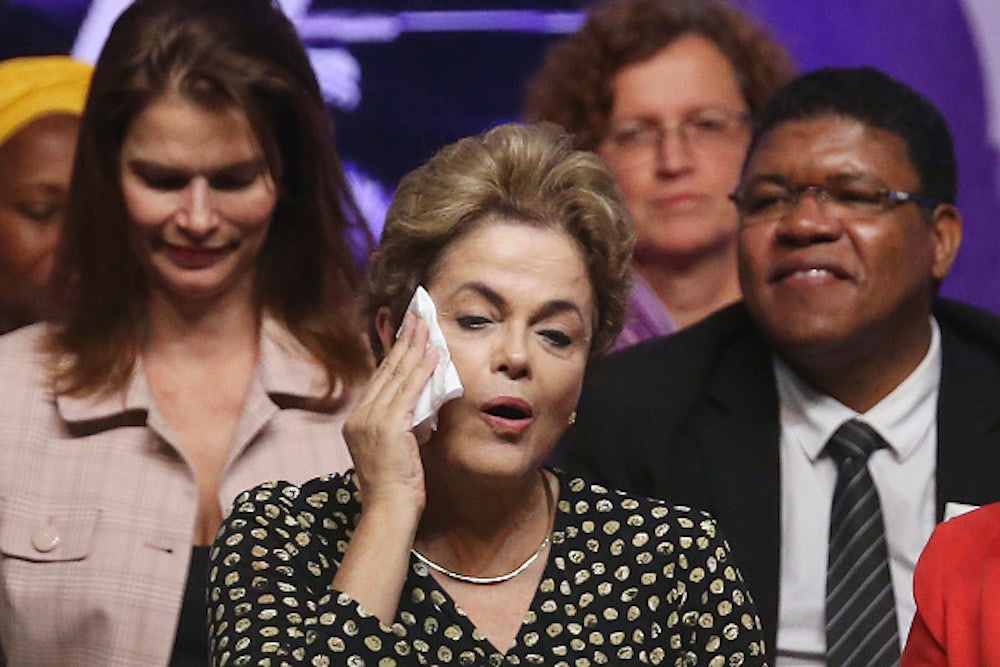As expected, the Brazilian Senate voted early Thursday to suspend President Dilma Rousseff and put on her on trial for impeachment. The leader of this months-long campaign in the lower house, Eduardo Cunha, was himself ordered to step down last week and will face charges of spiriting away as much as $40 million in bribes. The leader of impeachment in the Senate, Renan Calheiros, is under investigation as part of a sprawling political kickback scandal, as are many who voted in favor of impeachment in both chambers. Impeachment’s most vocal spokesman, Congressman Jair Bolsonaro, dedicated his vote to Brazil’s military dictatorship and the colonel responsible for torturing Rousseff, a former Marxist guerrilla, in the 1970s. Business interests backing the campaign include a host accused of modern-day slavery. The interim president, Michel Temer, heads a right-wing party that has lost four straight national elections to Rousseff’s Workers Party. He was recently convicted of campaign finance corruption and barred from running for office.
Rousseff’s many critics blame her for an economic recession and sprawling corruption scandal that has enveloped much of her party but not, crucially, her. But the real reasons for her removal are impossibly venal. A naked political power play has become a fight for the soul of Brazilian governance itself.
